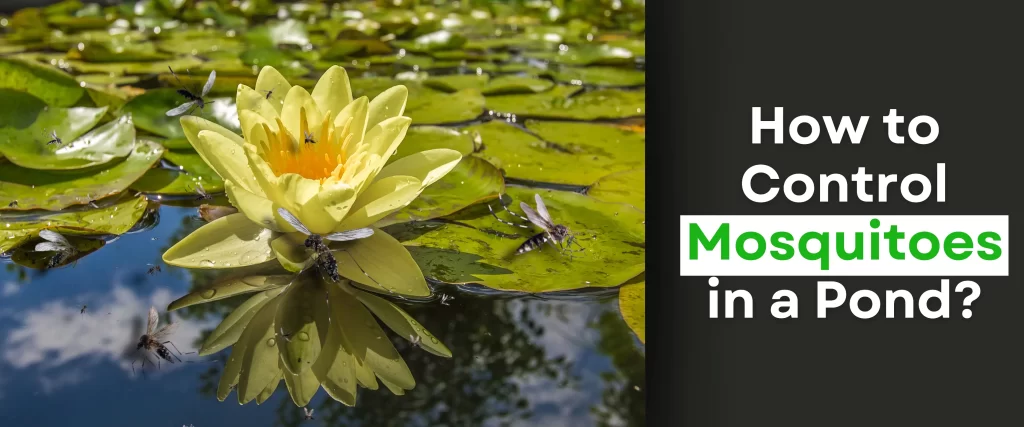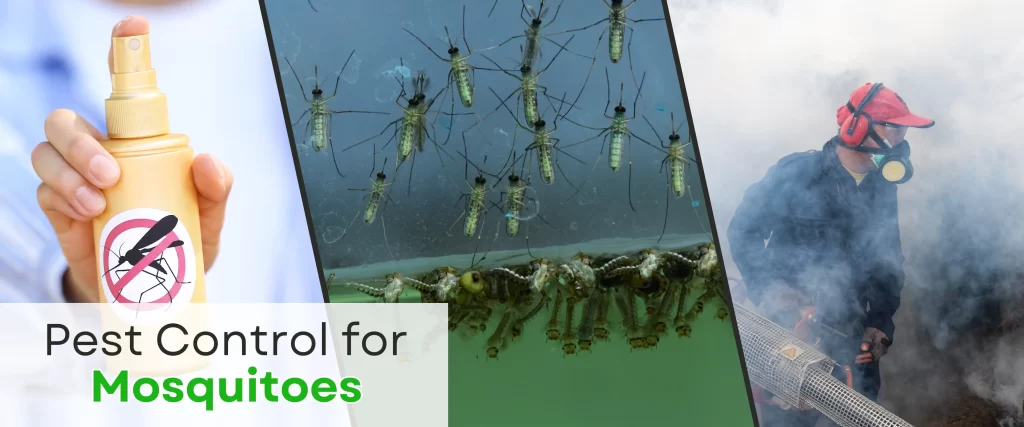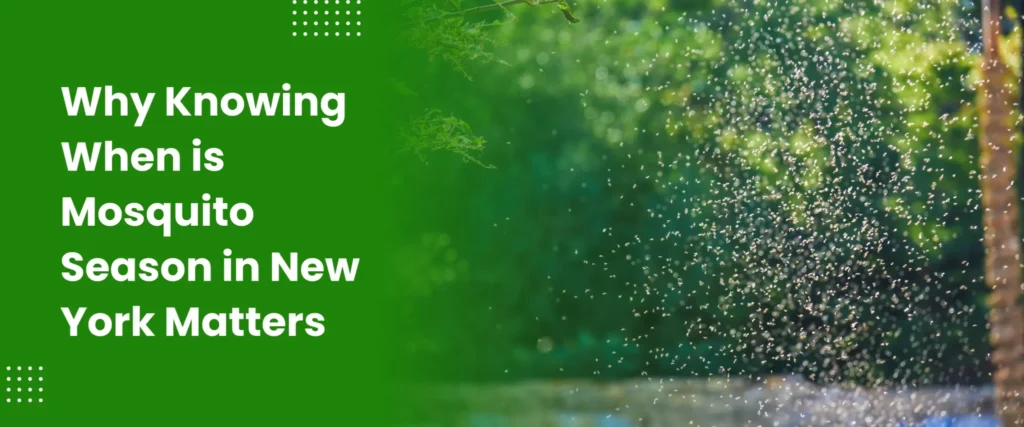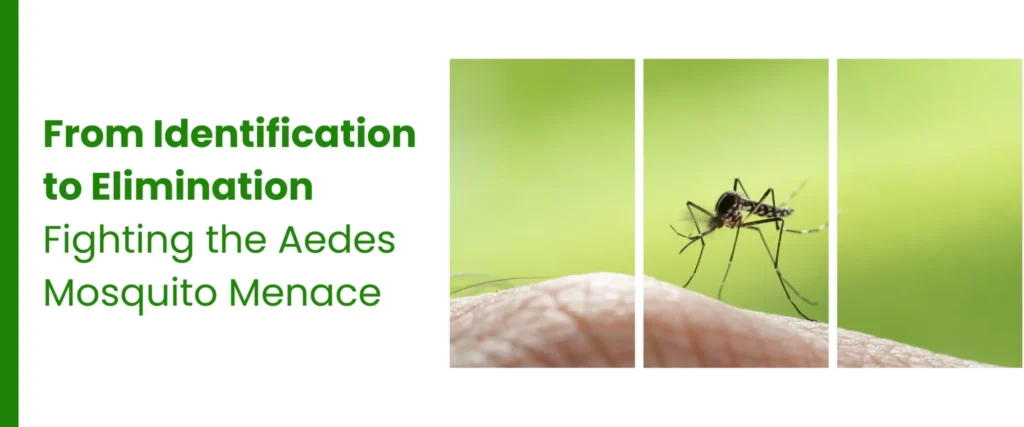
Expert Tips for Mosquito-Proofing Your Home and Yard in New York State
Mosquitoes are not just annoying pests; they can also pose serious health risks by transmitting diseases such as West Nile virus, Zika virus, and Eastern Equine Encephalitis (EEE). In New York State, where mosquito activity can be particularly high during the warmer months, it’s essential to take proactive measures to mosquito-proof your home and yard. Here are some expert tips for controlling mosquitoes and minimizing their presence in your outdoor spaces.
Understanding Mosquito Control:
How to Control Mosquitoes in Your Yard:
Controlling mosquitoes in New York City requires some specific strategies due to the urban environment. Here are some methods tailored to NYC:
Remove Stagnant Water:
Urban areas like NYC have plenty of opportunities for stagnant water to accumulate, such as in drainage ditches, potholes, and even discarded containers. Regularly check for and eliminate any sources of stagnant water around your property.
Keep Gutters Clean:
Gutters can easily become clogged with leaves and debris, creating pools of standing water where mosquitoes breed. clean out your gutters regularly to prevent this.
Use Mosquito Dunks:
Place mosquito dunks in areas where water tends to collect, such as flower pot saucers, bird baths, and drainage trays for air conditioning units.
Maintain Landscaping:
Trim bushes, shrubs, and grass regularly to reduce resting spots for mosquitoes during the day.
Install Screens:
Ensure screens on windows and doors to prevent mosquitoes from entering your home. Check for any holes or tears in the screens and repair them promptly.
Use Mosquito-Repellent Plants:
Consider planting mosquito-repellent plants like citronella, lavender, and marigolds in your yard or on your balcony.
Utilize Mosquito Traps:
Mosquito traps can be effective in urban areas. Place them strategically around your yard or balcony to capture and kill adult mosquitoes.
Apply Insect Repellent:
When spending time outdoors, especially in parks or near green spaces, use insect repellent containing DEET, picaridin, or oil of lemon eucalyptus.
Report Standing Water:
If you notice standing water in public areas like parks or sidewalks, report it to the appropriate city authorities so they can take action to eliminate the breeding grounds.
Coordinate with Neighbors:
Mosquito control efforts are most effective when coordinated with neighbors. Encourage others in your community to take similar measures to reduce the overall mosquito population.
Does Mosquito Control Work?
While various methods of mosquito control exist, their effectiveness can vary depending on factors such as mosquito species, environmental conditions, and the extent of the infestation. While some methods, like chemical sprays, can provide temporary relief, others, such as biological control agents like Bacillus thuringiensis (BTI), can offer longer-term solutions. Ultimately, the most effective approach to mosquito control often involves a combination of techniques tailored to the specific needs of your property.
Pest Control for Mosquitoes:
Can Pest Control Get Rid of Mosquitoes?
Professional pest control services can be highly effective in reducing mosquito populations on your property. Pest control technicians can conduct a thorough inspection of your home and yard to identify potential mosquito breeding sites and implement targeted treatments to eliminate existing mosquitoes and prevent future infestations. Additionally, they may recommend ongoing maintenance treatments to ensure long-term protection against mosquitoes and other pests.
Combining DIY and Professional Pest Control Methods:
While professional pest control services can provide comprehensive mosquito control, there are also steps you can take on your own to minimize mosquito activity. In addition to eliminating standing water and using repellents, consider landscaping modifications such as trimming overgrown vegetation and installing fans to create airflow that discourages mosquitoes from settling in your yard. By combining DIY efforts with professional pest control treatments, you can create a layered defense against mosquitoes.
Managing Mosquitoes in Specific Areas:
How to Control Mosquitoes in a Pond:

Ponds and other water features can provide ideal breeding grounds for mosquitoes if not properly maintained. To control mosquitoes in a pond, it’s essential to regularly remove debris and vegetation that could provide breeding sites for mosquitoes. Additionally, consider introducing mosquito-eating fish such as Gambusia affinis (mosquito fish) or using larvicides to target mosquito larvae without harming other aquatic life.
Tips for Controlling Mosquito Larvae in a Pond:
To effectively control mosquito larvae in a pond, it’s important to understand the mosquito life cycle and target larvae during their vulnerable stages. Biological control agents like BTI can be applied directly to the water to kill mosquito larvae before they mature into biting adults. Additionally, physical barriers such as mosquito nets or floating row covers can prevent adult mosquitoes from laying eggs in the water.
Mosquito and Tick Control: A Comprehensive Approach:
Does mosquito and tick control work?
Mosquitoes and tick control share similarities in several ways:
Preventive Measures:
Both require similar preventive measures to minimize their populations. These measures include eliminating standing water for mosquitoes and keeping grass trimmed and bushes pruned to reduce tick habitat.
Chemical Treatments:
Insecticides and acaricides (chemicals that kill ticks) are used to control both mosquitoes and ticks. These chemicals are often applied to outdoor areas where these pests are prevalent.
Public Awareness and Education:
Both mosquito and tick control efforts often rely on public awareness campaigns to educate people about the risks associated with these pests and how to prevent bites and infestations.
Environmental Management:
Both mosquitoes and ticks are influenced by environmental factors such as temperature, humidity, and vegetation. Environmental management strategies, such as habitat modification and biological control methods, can be employed to reduce their populations.
Health Concerns:
Mosquitoes and ticks are vectors for various diseases, including malaria, Zika virus, Lyme disease, and Rocky Mountain spotted fever. Controlling their populations is essential for public health and safety.
Eliminating Mosquito Breeding Sites:
How to Identify and Destroy Mosquito Breeding Places:
Mosquitoes can breed in surprisingly small amounts of water, so it’s essential to identify and eliminate potential breeding sites around your home and yard. Common breeding sites include clogged gutters, birdbaths, and even bottle caps left lying in the yard. By regularly inspecting your property and removing standing water, you can significantly reduce mosquito breeding opportunities and limit their population growth.
Importance of Ongoing Maintenance:
Mosquito control is an ongoing process that requires vigilance and regular maintenance. Even after implementing preventive measures and eliminating breeding sites, it’s important to continue monitoring your property for signs of mosquito activity and taking corrective action as needed. By staying proactive and maintaining a mosquito-free environment, you can enjoy your outdoor spaces without the nuisance of mosquitoes.
Conclusion:
Mosquito-proofing your home and yard in New York State requires a combination of proactive measures, targeted treatments, and ongoing maintenance. By understanding the habits and habitats of mosquitoes, implementing effective control strategies, and incorporating preventive measures into your daily routine, you can significantly reduce mosquito populations and minimize the risk of mosquito-borne diseases. With these expert tips, you can enjoy a mosquito-free summer and make the most of your outdoor living spaces.




